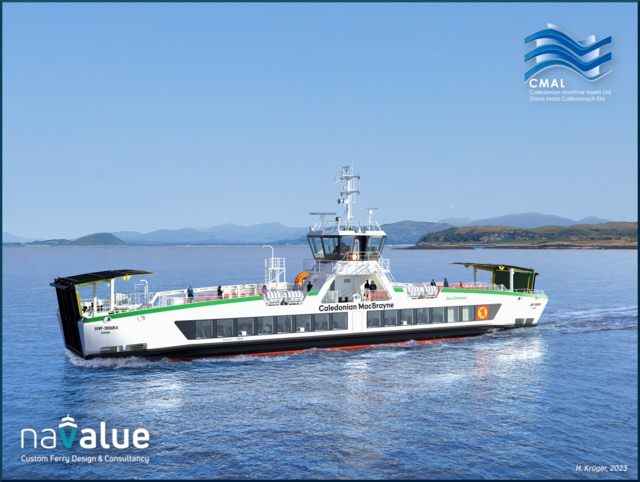SCHOTTEL will supply rudder propellers for a new series of seven electric double-ended ferries by Scotland’s state-owned Caledonian Maritime Assets Limited (CMAL). The vessels will be constructed by the Polish shipyard Remontowa Shipbuilding S.A, with the first delivery scheduled for 2027. Designed to operate across nine routes on Scotland’s West Coast, the ferries will contribute to more sustainable regional transport.

SCHOTTEL is to equip seven zero emission ferries with rudder propellers.
“For the new Loch-class ferries, our focus was on achieving excellent manoeuvrability, redundancy and high efficiency,” says Jim Anderson, Director of Vessels at CMAL. “Moreover, as part of Scotland’s critical transport infrastructure, these vessels must deliver maximum reliability. With SCHOTTEL’s modern propulsion systems, we are confident that all these requirements are fully met.”
SCHOTTEL propulsion concept for maximum efficiency and safety
The propulsion system selected consists of four SCHOTTEL RudderPropellers type SRP 100 L per vessel. Thanks to this configuration, a high level of redundancy is achieved, significantly enhancing reliability and operational safety of the ferries. In line with CMAL’s focus on efficiency and sustainability, each SRP features the L-Drive variant which eliminates the upper gearbox to further reduce mechanical losses and thus lower maintenance costs. Additionally, the L-Drive contributes to enhanced passenger comfort by minimizing vibration and noise levels. During transits at higher speeds, the ferries also benefit from top free-running efficiency thanks to the high-performance SDC nozzle with hydrodynamically optimized anode technology ProAnode.
Reliable operation under demanding conditions
To ensure dependable ship operation even under the demanding weather conditions off Scotland’s west coast, the SRPs will be specially equipped for this project with a fast-reacting azimuth steering system. This allows the vessels to achieve a higher positioning accuracy and extend operating times. Operational readiness of the ferries is further supported by the monitoring system SCHOTTEL MariHub which enables condition-based maintenance and helps to optimize service intervals.
Supporting connectivity and sustainability in Scotland’s ferry network
The newbuilds will play a key role in enhancing connectivity for islanders, businesses and communities. Six of the ferries can each carry 150 passengers and 24 cars, while one additional ferry can accommodate up to 250 passengers and 16 cars. Thanks to their electric propulsion system, the ferries are capable of zero emission operation with overnight battery charging. As part of CMAL’s “Small Vessel Replacement Programme”, the ships are central to a broader initiative aimed at renewing the small vessel fleet and associated port upgrades to accommodate the new vessels.